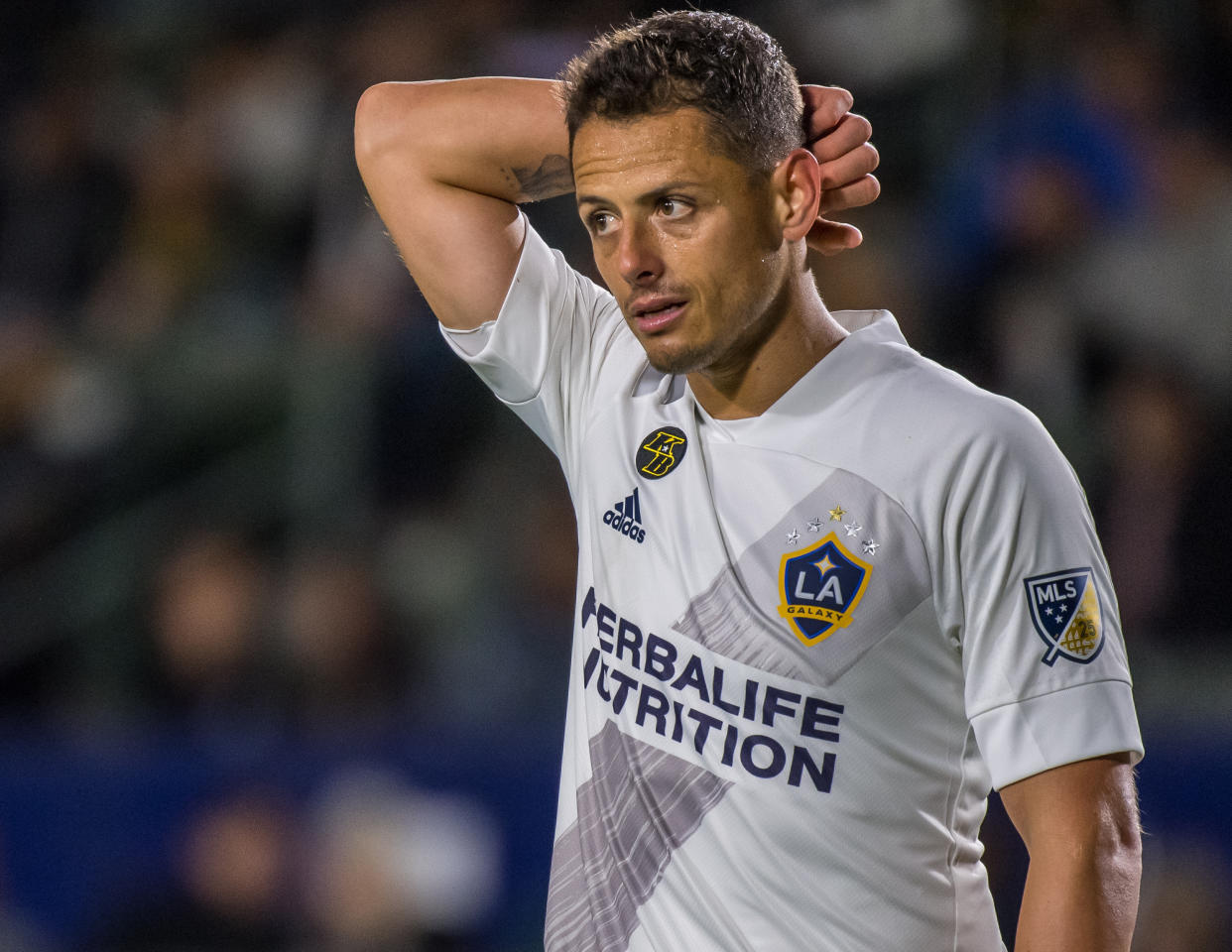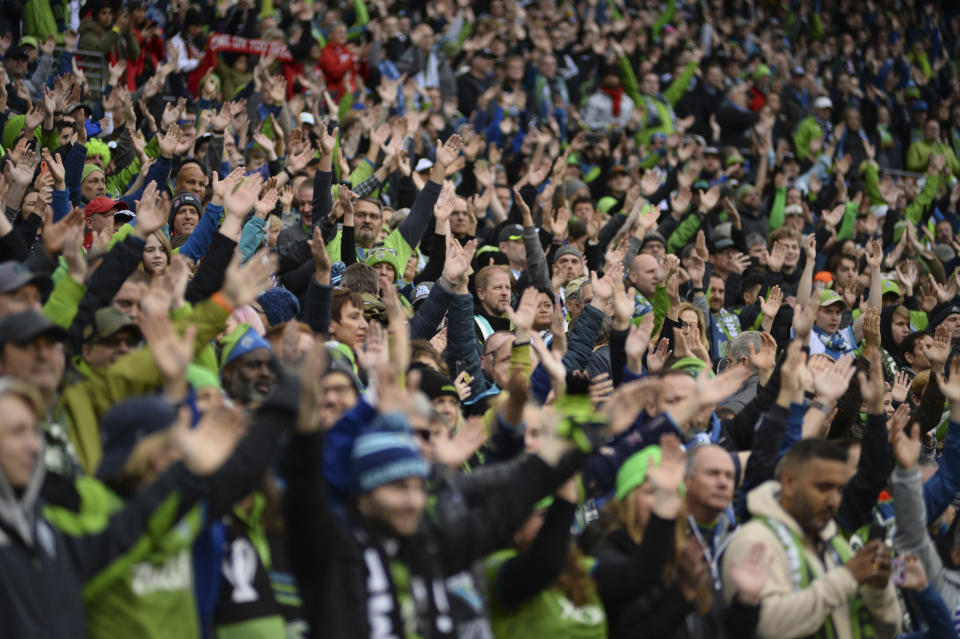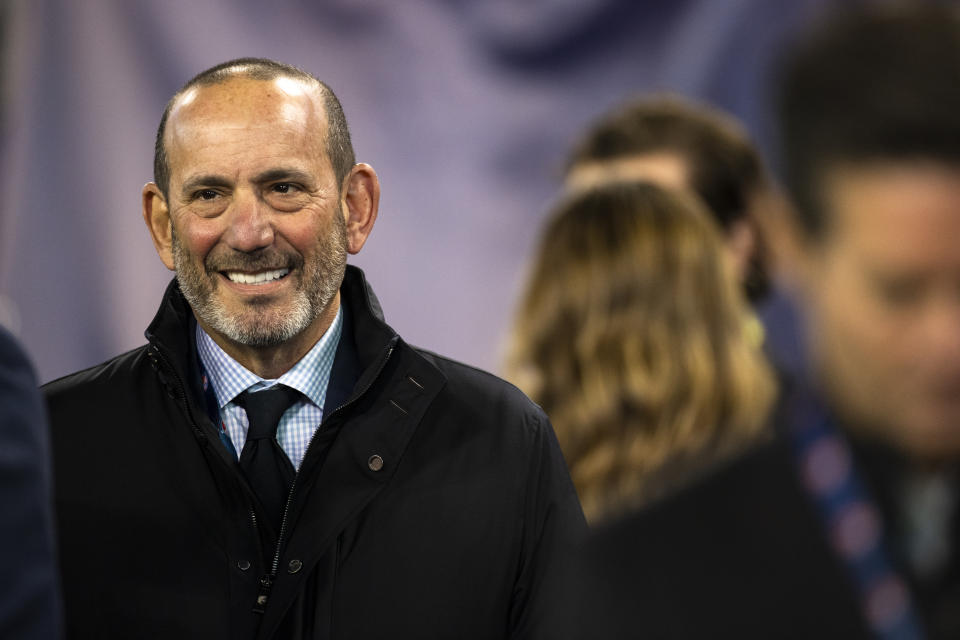Why the MLS summer tournament plan may not be a good idea

As sports leagues in the United States race to see which one can schedule a return date first, Major League Soccer has an opportunity. With competitors like the NBA and NHL looking at still-unconfirmed returns in July, swift action could leave MLS as the only major North American men’s sport with live games on television.
MLS and the MLS Players Association announced Wednesday they had reached an agreement to restart games soon, reportedly as early as June 24. The agreed-upon plan would see MLS host a knockout tournament in Orlando, Florida, while players are sequestered at Disney World resorts and regularly tested for COVID-19.
This format raises questions about logistics and safety that the league is apparently addressing. But there’s another question to ask: Is it worth it for MLS to host this tournament at all?
Why MLS’s chief selling point won’t be on display
It’s easy to see why MLS wants this. While the league has played second-fiddle to the ones considered the major sports in America, this plan could offer prime-time TV slots and eyeballs MLS would otherwise never have access to. If the TV ratings for a documentary about Michael Jordan and a golf exhibition featuring non-golfers like Tom Brady are any indication, Americans are starved for sports content.
Just imagine. Bored fans who have never watched soccer outside of World Cups and Olympics will tune in to MLS for the first time. Mainstream sports talk radio hosts and columnists, desperate for something new to talk about, will latch onto MLS.
The NBA isn’t looking at a return until July 31, and the NHL may not resume until August. MLB was looking at June 30, but negotiations between the league and players have gone poorly so far.
“Unlike the other leagues where their fan bases are deeply mature and have been around for generations, our absence from the sports scene made it really crucial for us to get back,” MLS commissioner Don Garber said Wednesday.
His implication was that no one will forget those other leagues exist, but MLS risks losing relevance as long as it doesn’t play games. If MLS can hog the spotlight for itself, no matter how briefly, it would be a much bigger boost to the relatively young soccer league than its well-established competitors.
Perhaps Garber is right. But there’s a flipside here. MLS’s most compelling aspects won’t be on display – not at what Alejandro Bedoya called a “luxurious prison” – and newcomers will be sampling a degraded product.
Unlike the NFL, NBA and MLB, MLS can’t claim it’s the best league in the world at its given sport. If someone wants to watch the best soccer, they will tune into the English Premier League or a handful of other leagues around Europe. What MLS has going for it is a robust supporters culture unlike anything traditional American sports offer.

The fans, perhaps more than the players, are MLS’s unique selling proposition. The Timbers Army may deride the league for using footage of their stunningly elaborate tifo displays and smoke-filled chants, but it’s easy to see why these images are favored. They’re captivating and create an intoxicating, electrifying atmosphere in which it’s easy to be swept up. Mercedes-Benz Stadium never looks like a more fun place to be than when Atlanta United and its supporters are in the house. (Sorry, Falcons.)
But those fans aren’t going to be in Orlando. Whether the venues are quiet enough to hear a pin drop or the “home” teams get to pick their own playlists to serve as the soundtrack, any American who thought soccer lacked excitement is not going to be swayed by an awkward makeshift quarantine tournament.
“We'll have more cameras on this broadcast than would be on a typical ESPN, Fox or Univision game,” Garber said. “There'll be more access to audio and views in these broadcasts that would be in a typical game, and we'll be able to utilize some technology to be able to deliver value to our teams that we're experimenting with in these broadcasts.”
If MLS and its broadcast partners get creative enough, technical enhancements may help. But there is no replacement for real-life fans and genuine passion – and casual watchers tuning in to MLS for the first time won’t get to see any of that.
Does MLS risk alienating fans who already love soccer?
The bigger worry for MLS may not be traditional American sports fans. The biggest risk may be with soccer fans, the ones who wake up early on weekends to watch the Premier League in droves but don’t attend MLS games in their own backyard.
These are the fans – often derided as “eurosnobs” – who love soccer but won’t give MLS the time of day because they deem it a far inferior product. They aren’t entirely wrong. MLS isn’t close to the EPL but those fans aren’t exactly right, either. The “retirement league” jokes no longer apply as MLS’s stars get younger and more exciting, and MLS’s quality has grown massively in the past five years. MLS, under normal circumstances, can feature some worthwhile soccer in front of packed crowds.
Yet the Orlando tournament figures to be MLS’s worst version of itself. The players will be coming off a much longer and more stagnant layoff than usual, and their “preseason” will be shorter too. Getting players game fit will be a challenge, and the threat of injuries is always present.
To put it bluntly, the product on the field might not be very good, and first impressions matter.
No one is going to watch subpar EPL games and decide that EPL isn’t good. No one will watch the NBA without fans and decide it’s boring. In Garber’s own words, fans are “deeply mature” in their view of those leagues.
If a fan tunes in to MLS for the first time, what are they going to get? And if it’s not good enough, what is the likelihood that was MLS’s only shot and that fan will never give it another try? It’s a risk.
That’s not to say there isn’t potentially a huge upside for MLS.
Garber said Wednesday that MLS will take a billion-dollar revenue hit due to the pandemic. That’s a lot of money for any league, and MLS needs to do anything it can to claw back those losses.

There’s also the potential to build partnerships at a time when everyone is looking for a way to weather this pandemic together.
MLS’s proposed plan reportedly includes doubleheaders with morning games as well as evening games, and MLS could find itself being broadcast in untapped and sports-starved markets in Asia and Europe. Stateside, meanwhile, MLS’s current broadcast deal ends in 2022, and by working with ESPN and its parent company Disney to launch this tournament when ESPN needs content, that could build equity for the next round of broadcast negotiations.
But the downsides are plentiful, too.
An MLS summer tournament without some big stars?
Reports indicate some star players can opt out of MLS’s tournament if they have legitimate concerns around COVID-19, such as a significant other who is pregnant.
Both LAFC’s Carlos Vela and the L.A. Galaxy’s Javier “Chicharito” Hernandez fall into that category, and it’s a good bet neither will be there. Vela was the league’s MVP and top scorer last year.
MLS players are required to play in the tournament in Orlando, Garber said, but he added there will be exceptions for special circumstances without outlining them.
Depending on what those exceptions are, other star players may also not be in Orlando. MLS can’t make a compelling case when its best players aren’t there.
This also brings up another group of soccer fans MLS should strive to court during its quarantine competition, but may not be equipped to: Spanish-speakers.
Liga MX games, not to mention El Clásicos between Barcelona and Real Madrid, routinely dominate soccer TV ratings in the United States, while the top-rated MLS games get fractions of the audience.
The country’s most sizable soccer audience speaks Spanish and cares more about teams in Mexico and Spain. MLS has historically struggled to reach these fans, which is why the league continuously looks for ways to partner with Liga MX.
Players like Vela and Chicharito are important for that outreach. But those players may not be in Orlando, and others might not be, either.
Regardless, it appears MLS isn’t letting what it lacks hold this plan back.
There may be no fans, missing stars and so-so soccer. But MLS does have a live sports product it can put on TV. In the age of COVID-19, that may be all MLS needs. Whether it’s the right decision for the long term or tarnishes an MLS brand that is still struggling to solidify its identity, time will tell.
Caitlin Murray is a contributor to Yahoo Sports and her book about the U.S. women’s national team, The National Team: The Inside Story of the Women Who Changed Soccer, is out now. Follow her on Twitter @caitlinmurr.
More from Yahoo Sports:

